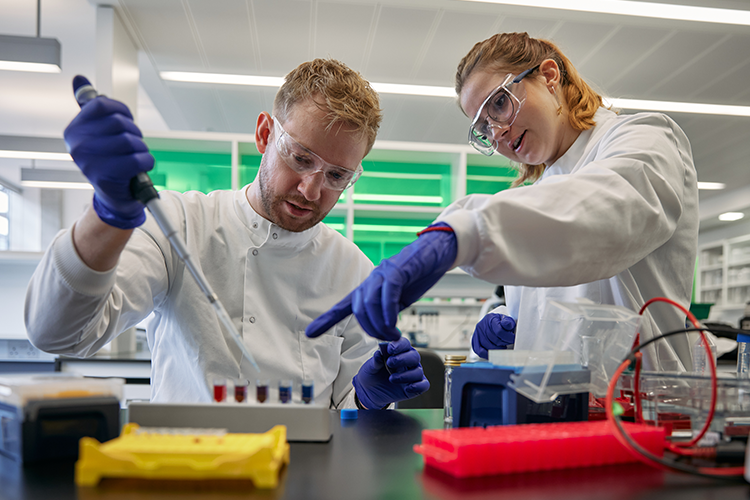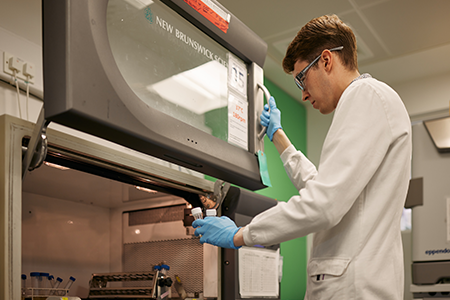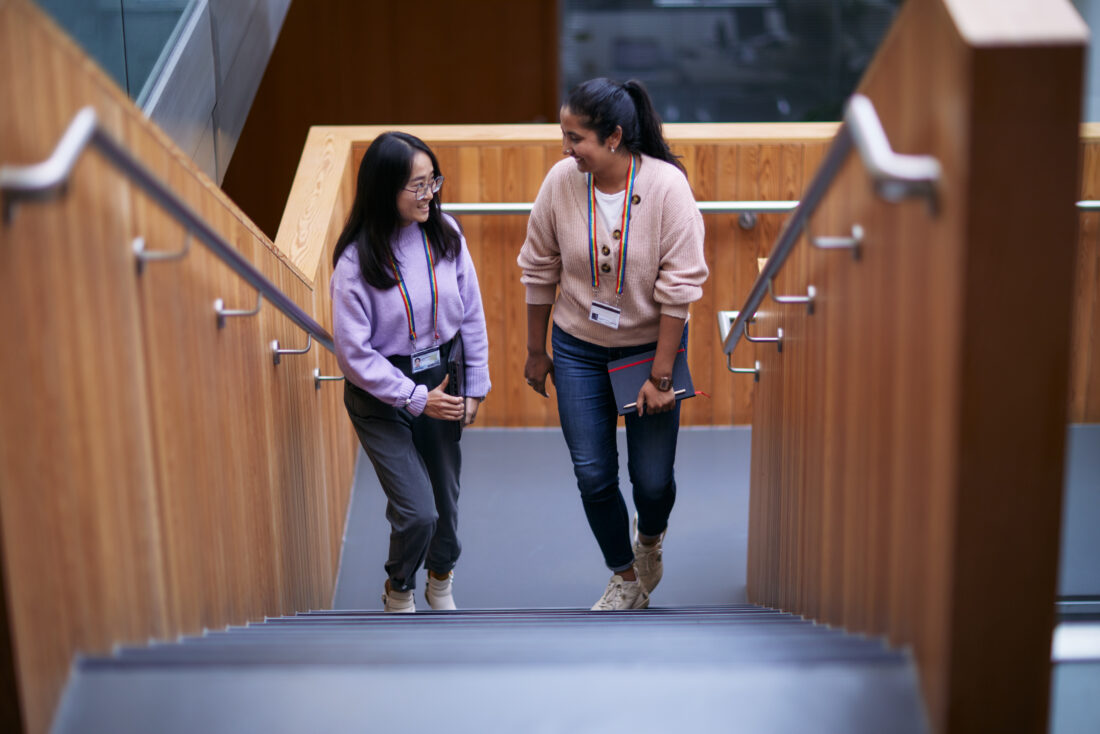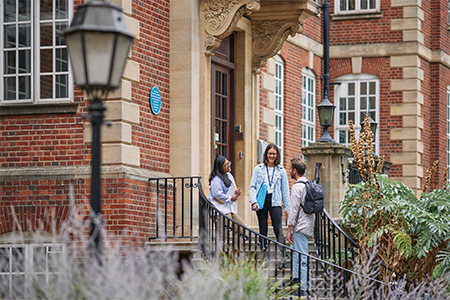
Four years of hands-on research
Our PhD programme is a four year programme, where students start to work in their lab of choice from day one. This means that you will have four full years to work on your research.
The specific groups and projects available for the next round of applications are listed once applications open in September. In the meantime, we encourage you to explore our research groups and main areas of research, and start making contact with the group heads to discuss your interests and whether they are planning to take on new students in the next round of applications.
Fully Funded

Most applicants awarded a place through our PhD programme application process have their university and college fees covered, and will also receive a generous tax-free stipend (currently £21,737pa for 24/25) and research expenses, training and travel allowance (£5,300pa).
If you miss the application deadline for our funded programme (early December), you can also do a PhD at the Dunn School via other routes.
Training Opportunities
Apart from a short induction period, there is no other compulsory course work in our PhD programme. However, you will have access to a comprehensive skills training programme over the four years with us. This includes workshops, seminars and symposia. One of the highlights is our annual Graduate Student’s Symposium, where students have the opportunity to present posters and talks about their ongoing work.
There are also other training opportunities outside our PhD programme. As a member of the University, you will have access to the full range of Oxford’s training courses. The Dunn School also runs workshops and talks covering a variety of topics that are open to all members of the department. If you need access to a training course not available in Oxford, we also have internal funding schemes to support your career development goals.
All Nationalities Welcome!
We have no restrictions on nationality, and our current graduate community represents over 30 countries. Most of our students come from outside the UK. If you are offered a funded place on our programme, we will cover the cost of the international fees.
If you are an international student, after completing your PhD you are entitled to remain in the UK for a further 3 years on a flexible Graduate Visa.
Supporting you
We want you to succeed and reach your full potential during your time at the Dunn School. As a graduate student with us, you will be guided by a team that includes your main supervisor, as well as a co-supervisor/graduate advisor (who is an experienced group leader in the department) and the Director of Graduate Studies, Professor Anton van der Merwe. You will also be supported by Lucinda Risius, the Graduate Studies Administrator. Your supervisor may also appoint a senior member of their laboratory to provide day-to-day support in the lab.
Another great source of support, but also social interactions, is our Graduate Student Association (GSA). The GSA is run by and for students, and actively contributes to student life in the department. The GSA runs a series of social and academic events, provides a support network and is always keen to incorporate suggestions of students on how best to enhance this social, inclusive and supportive graduate community.
We continuously receive high satisfaction levels about our PhD programme, reflecting our commitment to continually improve our training and ensure that students are fully supported.
The Right Place
The Dunn School is one of the UK’s leading biomedical departments, and the perfect place to start your research career. We have a spectacular history and a fantastic ongoing research output. We are very proud of our research programme, and take very seriously our responsibility to recruit, mentor and train the best graduate students from across the world as they start their research journey. The success of our supervision and training is evidenced in the thriving careers that our students lead after their time with us, including in academia (e.g. Nobel Prize winners, head of major national and international scientific organisations), but also in other areas such as consultancy, entrepreneurship, medicine, law and public service.
We are located in a beautiful setting adjacent to the University Parks, and you will benefit from our proximity to other science departments and facilities, colleges, libraries, and central Oxford. We have state of art lab space, outstanding scientific facilities, and comfortable and sociable communal spaces.
Importantly, we place a really strong emphasis on promoting an inclusive environment, where diversity of all forms is celebrated. We also take our environmental responsibilities very seriously. You can find out more on our Culture and Values page.
How to apply
Find out more about how to apply for our PhD programme, including deadlines and application requirements.
Graduate Student Association
The Graduate Student Association is run by volunteers and actively contributes to student life, helping maintain a social and supportive graduate student community within the Dunn School.
Available PhD Projects
Over 30 groups work at the Dunn School to uncover the molecular and cellular mechanisms underlying disease. Discover which research groups are accepting students for our next round of applications.

